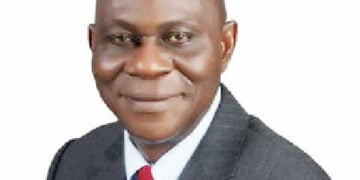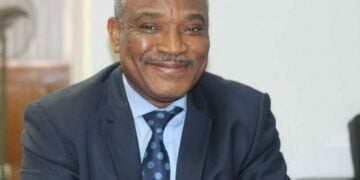Globally, our education systems are in crisis. In Sub-saharan Africa, 45% of school-age children are out-of-school, this is made even worse with the Covid-19 pandemic and insecurity problems in many parts of the continent (UNICEF).
The conversation around educational transformation has been long due, especially with rapidly changing global dynamics and new challenges everyday ranging from environmental problems, cultural norms, poverty, insecurity to lack of access.
The Webinar
Earlier this month, the FlexiSAF Foundation organized a global webinar on Zoom, bringing together 10 young experts from 10 different African countries across diverse backgrounds in education, each of them sharing their experiences and views on what we need to do to bring about educational transformation in Africa. This webinar was held to raise awareness about educational issues, and note down the recommendations of experts and translate them into action. It is long due to giving education the importance it deserves.
The webinar was aimed at the United Nations as a contribution to the recently concluded transforming education summit #TES2022 was held at its headquarters in New York.
Webinar Activity
The webinar was a global event, attended by 131 participants from 15 African countries, Italy and the USA.
Presentations
The session was opened by the host and moderator, Amina Abubakar (Nigeria) who is also the Executive Director of FlexiSAF Foundation (a non-profit organization that empowers out-of-school children and youth with 21st century skills through quality education).
According to Amina, the webinar had the following objectives:
– Raise awareness about the challenges of Education in Africa and the role everyone plays
– Get recommendations from young experts on the way forward for educational transformation
– Share the report with relevant stakeholders including the United Nations.
Featured Speakers
Rose Nyagwoka – Kenya
The competency based curriculum in Kenya has helped children and schools to focus on their individual course of interest. It has made it easier for children to choose their career path and develop necessary skills which has made education costly because most learning requires materials that are not so affordable.
Kenya is giving a 21st century education and has taken up the dissemination of tablets and laptops to schools which has made a great difference in the education system.
However, there are very few schools for people who are differently abled in Kenya, regular schools are not accommodating of children with disabilities.
Although the United Nations pushes a lot on inclusive education yet there is no school that is completely inclusive of children with disabilities. “The United Nations should make this their agenda for the next 5 years to prioritize inclusive education especially for differently abled children.”
Gloria Anderson – Tanzania
The government established computer labs for public schools and provided capacity building for teachers. Globally, education is more of individualization than generalization and digitalization is the best way to transform education. However, digitalization in some African countries may not be feasible. In most African countries, while it’s important to provide quality education before going into digitalization because poor infrastructure, poor electricity supply, poor mobile networks and internet are major problems that need to be fixed, these problems should not hinder our efforts to digitalization because the world is going digital and we need to catch up. These problems can be also solved by implementing our already existing policies.
Donat Muqenga – Rwanda
Rwanda is intentional about investing in education, they’ve over 98% children enrolled in primary education. The government has created an environment in terms of policy formulation, strategy implementation and also being intentional in investing and making free education accessible from primary to secondary level. Rwanda has created an enabling learning environment for children with the help of private sectors and development partners which has intentionally transformed education.
Akua Oforiwa Darko – Ghana
Equity in education and health in education are major problems in Ghana. Equal access to education is hampering the development of education. In rural areas, children have limited or no access to basic learning tools such as well-equipped classrooms, computers, labs, playgrounds, among other things. Often, the teachers are often not qualified or do not turn up, leading to a poor quality of education. Health in education in terms of young girls being on their monthly flow, they usually have no access to sanitary towels or can not afford it. This has affected their learning because they’re forced to stay at home when it is the time of the month.
Makala Monga – Zambia
There is an increase in the establishment of universities. However, Zambia is facing a socioeconomic problem, tertiary education isn’t affordable which makes it difficult for students to access education. In Zambia, the government has increased access to primary education and has created a plan that public funded institutions can offer education for free for children from early years to 7th grade.
Covid-19 created a major setback for privately owned tertiary institutions, education wasn’t a priority for most people because they had to worry about their basic necessities including healthcare. During this period, most people became jobless and businesses were closed, which made it difficult for students to pay their tuition which affected staff.
Emnet Tsafe – Ethiopia
Covid-19 caused a major setback in health science colleges and medical colleges in Ethiopia. By nature, medical education needs more practical activities but during that period all physical and practical activities were postponed which decreased the quality of medical education. Though the online classes used to engage students also helped in the utilization of technology.




